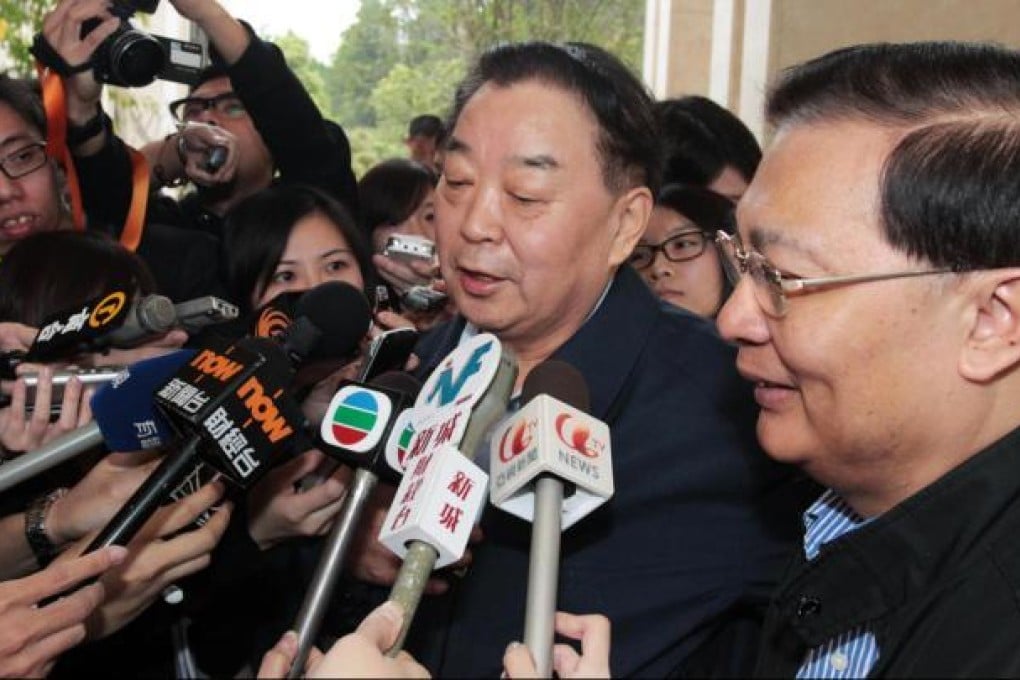Opponents of Beijing ineligible to be CE: top Chinese official
Top mainland official cites 3-stage test under which any candidate who 'confronts' central government would fail to qualify for election

A top mainland official yesterday set the tone for the debate over Hong Kong's political reform by declaring that any members from the opposition camp who insist on confronting the central government cannot become the city's chief executive.
Despite declaring Beijing's "unswerving" commitment to universal suffrage by 2017, Qiao Xiaoyang, chairman of the Law Committee under the National People's Congress, also dropped the most significant hint so far about a screening mechanism being introduced ahead of the chief executive poll in 2017.
Qiao made the remarks in a closed-door seminar on the Basic Law, Hong Kong's mini-constitution, attended by almost 40 pro-establishment lawmakers in Shenzhen yesterday.
In the meeting - attended by the director of the State Council's Hong Kong and Macau Affairs Office, Wang Guangya, and the director of the liaison office in Hong Kong, Zhang Xiaoming - Qiao said the central government insisted that it was committed to Hong Kong achieving universal suffrage by 2017 in accordance with the Basic law.
It was "also unswerving that chief executive candidates must be persons who love the country and love Hong Kong, while the methods in the universal suffrage must match with the Basic Law and the decisions by the NPC Standing Committee", he said.
In a rare elaboration, Qiao admitted it would be difficult to write into law criteria for the "love country, love Hong Kong" notion, but those "who confront the central government" would fail to qualify, he said. This would be decided in three steps. "Firstly, the nomination committee will decide. Then the voters in Hong Kong will decide. Lastly, the central government will decide whether to appoint [the candidate] or not. Every person has a scale in their hearts," Qiao said.
